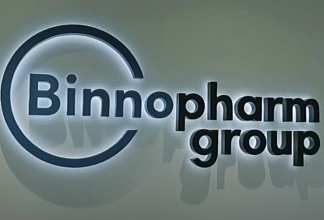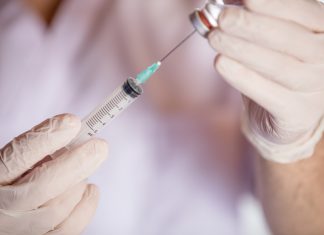All newborns of the Krasnodar Krai will be tested for spinal muscular atrophy (SMA) and primary immunodeficiency disorders (PIDs). At the moment, in most regions of Russia, large-scale newborn screening includes only five hereditary diseases: phenylketonuria, adrenogenital syndrome (adrenal cortex dysfunction), congenital hypothyroidism, galactosemia and cystic fibrosis. Neonatal heel prick is performed on all 3 to 7-day-old newborns to identify these severe diseases at the pre-symptomatic stage.
The pilot project will be implemented in Kuban Interregional Medical and Genetic Consultation (KMMGC) with the support of the Academician Bochkov Medical and Genetic Research Center (MGNTs) and Dmitry Rogachev National Research Center of Pediatric Hematology, Oncology and Immunology.
“The Kuban Interregional Medical and Genetic Consultation (KMMGC) is one of the best in the Medical and Genetic Service of Russia. Every year, specialists receive more than 10,000 families of patients with hereditary diseases to clarify the diagnosis, administer treatment, as well as provide counseling on infertility, habitual miscarriage and family planning. Amidst the shortage of personnel of the Medical and Genetic Service in the country in general, the KMMGC managed to form a staff of highly qualified specialists: geneticists who consult patients; laboratory geneticists who conduct high-tech genetic research; ultrasound diagnostics doctors, obstetricians and gynecologists. KMMGC also employs endocrinologists, psychologists and neurologists who provide the necessary care to patients with hereditary pathology. Participation in the expanded neonatal screening project brings the region to an even higher level of medical genetics technologies development and forms the basis for the creation of one of the nine mass neonatal screening centers in Russia in the Krasnodar Territory,” said Evgeny Filippov, the Minister of Health of the region.
Screening for SMA and primary immunodeficiency will determine children who are in the risk group, i. e., those whose tests showed a high probability of the disease. They will be referred to specialized institutions for confirmatory diagnosis. To establish the diagnosis of SMA, the Bochkov Medical and Genetic Center will detect mutations in the SMN1 gene, as well as determine the number of copies of the SMN2 gene, which is extremely important for the timely treatment initiation. Confirmatory diagnosis of primary immunodeficiency will be provided in regional centers, and in difficult cases, families will be referred to Dmitry Rogachev Center.
MGNTs has already received over 13,000 biomaterial samples of newborns from the Krasnodar Territory for testing.
“According to our calculations, mass neonatal screening for 36 hereditary diseases will save up to 2 thousand newborns per year. Regulatory documents on expanded neonatal screening have already been developed, and they are currently undergoing internal approvals. At the moment, interregional centers have also been identified that will carry out neonatal screening in their territories, monitor the provision of medical care and medicines supply to identified patients. All that is stipulated for in the federal project approved by the government,” said Sergey Voronin, Candidate of Sciences in Medicine, the chief physician of the Bochkov Medical and Genetic Research Center, Deputy chief consultant in Medical Genetics of the Ministry of Health of Russia.
The first regions to join the pilot project “Mass neonatal screening for spinal muscular atrophy (SMA) and primary immunodeficiency disorder (PID)” were Vladimir and Ryazan regions. The project is designed for 200,000 newborns and will cover at least six regions of Russia.




